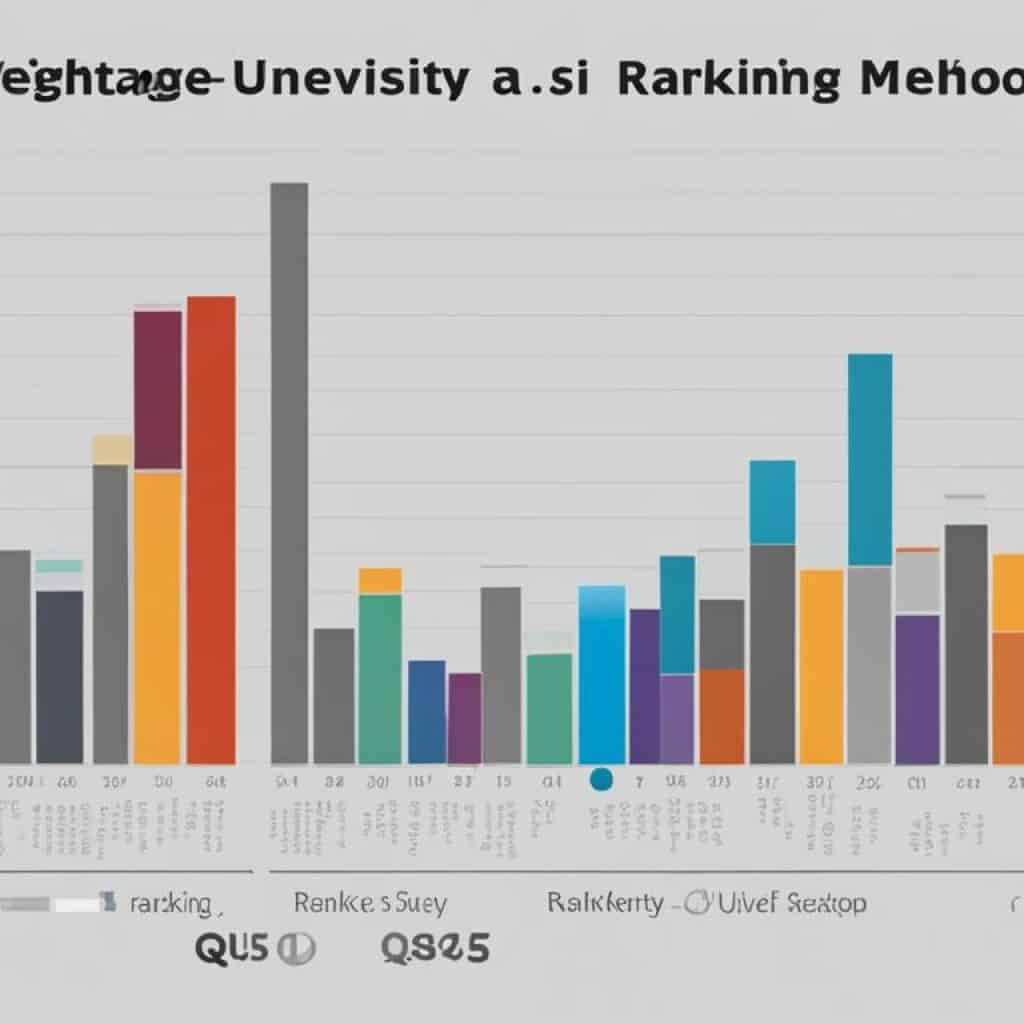When it comes to higher education in the Philippines, there are numerous outstanding institutions that offer quality education and shape the future of the country’s workforce. As we look ahead to 2024, it’s essential to identify the top universities that are paving the way for excellence in education.
Which universities will rise to the top and continue to make a significant impact on the country’s educational landscape?
Join us as we delve into the world of Philippine higher education and uncover the best universities to watch in the Philippines for 2024. Discover the educational institutions that are leading the way, setting new standards, and nurturing future leaders.
Key Takeaways:
- The University of the Philippines (UP) is ranked as the best university in the Philippines for 2024.
- UP remains the top university in Southeast Asia, representing educational excellence in the region.
- Other top-ranking universities in the Philippines include Ateneo de Manila University, De La Salle University, and University of Santo Tomas.
- The QS Asia University Rankings consider various factors like academic reputation, employer reputation, and international research network.
- University rankings play a significant role in students’ university choices and provide global recognition to institutions.
UP leads the way
The University of the Philippines (UP) continues to lead the way in Philippine higher education. As the best university in the country and the top university in Southeast Asia, UP has established itself as a powerhouse in the field of education. With its strong academic reputation and international research network, UP stands out as a symbol of excellence.
UP’s commitment to educational excellence has earned it the distinction of being the best university in the Philippines. Students who choose UP can expect a world-class education that prepares them for successful careers in their chosen fields. The university’s top-ranked status in Southeast Asia further solidifies its reputation as a center of academic excellence.
One of UP’s key strengths lies in its academic reputation. It is widely recognized for its rigorous curriculum, esteemed faculty members, and high standards of teaching and research. UP’s commitment to producing well-rounded graduates who excel in their respective disciplines sets it apart from other institutions.
UP’s profound impact on Philippine society and its contributions to research and development have made it an undisputed leader in higher education.
Furthermore, UP boasts a strong international research network that enhances its academic offerings. Through collaborations with renowned international institutions, UP not only expands the horizons of its students but also contributes to global knowledge and innovation.
As UP continues to lead the way, it sets an example for other universities in the Philippines and inspires them to strive for excellence. By nurturing talent, fostering breakthrough research, and promoting intellectual curiosity, UP remains at the forefront of shaping the future of Philippine higher education.
Other top universities in the Philippines
While the University of the Philippines (UP) has secured the top spot in the rankings, there are several other prestigious universities in the Philippines that have also earned recognition for their excellence in education. These universities provide students with exceptional academic opportunities and contribute significantly to the country’s higher education landscape.
Here are some of the other top universities in the Philippines:
- Ateneo de Manila University
- De La Salle University
- University of Santo Tomas
- Adamson University
- Polytechnic University of the Philippines
- University of San Carlos
- Mapua University
- Silliman University
- Ateneo de Davao University
- Far Eastern University
- Mindanao State University (MSU)-Iligan Institute of Technology
- Saint Louis University
- Lyceum of the Philippines University
- MSU-Marawi
- Xavier University
These universities have established themselves as key players in Philippine higher education, offering a diverse range of academic programs and fostering a culture of excellence in teaching and research.
QS Asia University Rankings methodology
The QS Asia University Rankings provide a comprehensive assessment of universities in the Asian region. The rankings are based on a meticulous ranking methodology that takes into account various factors to evaluate the quality and reputation of universities.
Key factors considered in the rankings include:
- Academic Reputation: This indicator measures the perception of universities among academics, reflecting their expertise, research output, and overall academic excellence.
- Employer Reputation: The employer reputation indicator gauges the perception of universities among employers, assessing the quality of graduates and their employability in the job market.
- Faculty-Student Ratio: This ratio assesses the level of interaction and support available to students by measuring the number of faculty members per student. A lower ratio is indicative of better student support and engagement.
- International Research Network: Universities with a strong international research network demonstrate collaborations and partnerships with esteemed institutions worldwide, contributing to knowledge exchange and research advancements.
- Additional Factors: Other factors such as internationalization, inbound and outbound exchange programs, and the presence of international students are also taken into consideration to provide a holistic evaluation of universities.
By considering these diverse factors, the QS Asia University Rankings provide valuable insights into the strengths and opportunities of universities in the Asian region, allowing prospective students and stakeholders to make informed decisions.

Note: The image above highlights the various factors considered in the QS Asia University Rankings methodology.
UP’s strengths in the rankings
The University of the Philippines (UP) has established itself as a leader among Philippine universities and stands out in various aspects, contributing to its exceptional rankings. UP’s strengths lie in its international research network, academic reputation, and employer reputation.
UP’s international research network plays a crucial role in its success, fostering collaborations with renowned institutions worldwide. These partnerships enhance the university’s research output and facilitate knowledge exchange on a global scale.
“UP’s strong international research collaborations contribute to its high standing in the rankings, showcasing its commitment to academic excellence and global impact.”
Additionally, UP’s impeccable academic reputation sets it apart from other universities in the Philippines. With its distinguished faculty and rigorous academic programs, UP consistently produces graduates who excel in their respective fields.
Employers recognize UP’s commitment to excellence, leading to a strong employer reputation. UP graduates are highly sought after in the job market, valued for their skills, knowledge, and critical thinking abilities.
Here’s a snapshot of UP’s strengths in the rankings:
| Strengths | Ranking Performance |
|---|---|
| International Research Network | Top-tier collaborations with global institutions |
| Academic Reputation | Recognized as a leading educational institution |
| Employer Reputation | Graduates highly valued by employers |
UP’s strengths in the rankings highlight its unwavering commitment to academic excellence, global engagement, and producing well-rounded graduates ready to contribute to society.
UP’s academic reputation
The University of the Philippines (UP) has established itself as the top university in the Philippines, renowned for its exceptional academic reputation. When it comes to academic excellence, UP stands head and shoulders above other universities in the country, earning it a high score in the academic reputation indicator.
UP’s commitment to providing quality education and fostering a culture of intellectual inquiry has garnered the trust and respect of both academics and researchers. Its strong academic reputation is a testament to the institution’s unwavering dedication to scholarship and knowledge creation.
With a focus on rigorous academic standards, UP consistently produces graduates who excel in their chosen fields and make significant contributions to society. The university’s alumni have achieved remarkable success, further enhancing UP’s reputation and solidifying its position as a top university in the Philippines.
| Factors contributing to UP’s academic reputation | Score |
|---|---|
| Quality of faculty and teaching staff | 9.6 |
| Research output and impact | 9.8 |
| Prestige and recognition in academic circles | 9.7 |
| Contributions to knowledge and innovation | 9.5 |
UP’s continuous pursuit of excellence in all areas of academic endeavor has established its reputation as a beacon of knowledge and innovation. The university’s high score in academic reputation reflects the trust placed in UP by the academic community and its contribution to advancing education and research in the Philippines.
UP’s international research network
The University of the Philippines (UP) stands out not only for its academic excellence but also for its strong international research network. UP has fostered robust collaborations with renowned international institutions and researchers, resulting in groundbreaking research output and global recognition.
Through its international research network, UP has expanded its reach and impact in various fields of study. This network enables UP researchers to engage in cutting-edge research projects, share knowledge, and collaborate with experts from around the world.
By nurturing strong international collaborations, UP enhances its research capabilities and continues to contribute significantly to the advancement of knowledge. The university’s international research initiatives cover a wide range of disciplines, fostering innovation, and addressing global challenges.
UP’s commitment to international research collaboration is reflected in its high score in the international research network indicator. This recognition further solidifies UP’s position as a leading institution in the Philippines and beyond.

UP’s international research network enables researchers and scholars to exchange ideas, collaborate on research projects, and contribute to breakthrough discoveries. As a result, UP’s global reputation and influence continue to grow, attracting researchers and students from all over the world.
Other factors considered in the rankings
In addition to academic reputation and international research network, the QS Asia University Rankings take into account various other factors that contribute to the overall assessment of a university’s quality and global standing.
Employer Reputation
One of the key ranking factors is the employer reputation, which signifies how employers perceive and value graduates from a particular university. This factor highlights the importance of universities in preparing students for the job market and ensuring their employability.
Faculty-Student Ratio
The faculty-student ratio is another significant factor considered in the rankings. It indicates the number of students being taught by each faculty member. A lower ratio implies that students receive more personalized attention, mentoring, and guidance from the faculty, enhancing their learning experience.
International Students
The presence of a diverse and vibrant international student community contributes to the global appeal of a university. QS Asia University Rankings take into account the percentage of international students enrolled at each university, reflecting the institution’s ability to attract students from around the world.
Inbound and Outbound Exchange Programs
Exchange programs provide students with the opportunity to study abroad and experience different learning environments. The rankings consider both inbound and outbound exchange programs, demonstrating a university’s commitment to fostering international collaborations and providing students with global exposure.
“Universities that prioritize employer reputation, maintain a low faculty-student ratio, attract international students, and offer diverse exchange programs, are positioned to provide a holistic learning experience and produce graduates who are in high demand.”
These ranking factors, along with academic reputation and international research network, help evaluate the strengths and quality of universities in the QS Asia University Rankings.
Top universities in Southeast Asia
When it comes to higher education in Southeast Asia, there are several prestigious universities that stand out. According to the QS Asia University Rankings, one of the top universities in the region is the National University of Singapore, which holds the coveted first position. This university has consistently demonstrated excellence in various academic disciplines and is recognized for its world-class faculty and research programs.
Another noteworthy university in Southeast Asia is the University of the Philippines (UP). With a strong reputation for academic excellence, UP has secured the 18th spot among Southeast Asian universities in the QS rankings. This venerable institution has been a driving force in Philippine higher education and is widely regarded as one of the top universities in the country.
| University | QS Rank |
|---|---|
| National University of Singapore | 1 |
| University of the Philippines (UP) | 18 |
These rankings highlight the exceptional quality of education offered by these universities in Southeast Asia. From cutting-edge research facilities to renowned faculty members, these institutions provide students with a conducive learning environment. Aspiring students seeking top-notch education in the region can consider these universities as their preferred choice.
By continually attracting talented students and fostering collaboration with international partners, the top universities in Southeast Asia are gradually establishing themselves as global educational powerhouses. The academic achievements and contributions of these institutions are solidifying their status as leaders in higher education not only in their respective countries but also on a global scale.
The significance of university rankings
University rankings play a crucial role in assessing the quality and reputation of institutions, providing valuable insights for students, researchers, and employers. These rankings offer a global perspective, enabling individuals to make informed decisions about their educational pursuits and collaborations.
When exploring university options, rankings serve as an essential tool for evaluating the overall quality of an institution. By considering factors such as academic reputation, faculty-student ratio, and international research network, prospective students can gain valuable insights into each university’s strengths and areas of expertise.
For researchers and academics, university rankings provide a benchmark for identifying institutions with strong research capabilities and fruitful collaborations. Recognized universities often have established international networks, facilitating knowledge exchange, research partnerships, and access to diverse resources.
“University rankings provide a roadmap for excellence and highlight the institutions that have achieved global recognition for their educational and research contributions.”
Employers also rely on university rankings to assess the quality of graduates entering the job market. Recognizing the reputation and rigor of certain institutions, employers can prioritize recruitment efforts from top-ranked universities, knowing they are investing in well-rounded and highly skilled individuals.
Furthermore, being ranked among the top universities in the Philippines and Southeast Asia brings global recognition and prestige to these institutions. This recognition bolsters their reputation, increases their visibility on the international stage, and attracts global talent, thus fostering a diverse and vibrant academic community.
In summary, university rankings are not merely a list of numbers and figures; they are an invaluable resource for assessing university quality, guiding educational choices, and fostering global recognition. By leveraging these rankings, individuals can make informed decisions that align with their educational and career goals, while institutions can showcase their strengths and nurture a reputation for excellence.
The impact of rankings on students
When it comes to choosing a university, students often rely on rankings to guide their decision-making process. These rankings have a significant impact on students, influencing their perception of a university’s quality, reputation, and academic excellence. High rankings indicate a level of academic distinction and can serve as a key factor in attracting students who are seeking the best educational experience.
Rankings can shape students’ perceptions of a university’s reputation. Students are more likely to view a highly ranked university as prestigious and reputable, which can enhance their sense of pride and satisfaction in their chosen institution. A strong reputation can also contribute to a university’s ability to attract top students, faculty, and funding, further enhancing its academic offerings.
“University rankings serve as a compass for students, providing them with valuable information about the quality and reputation of different institutions. These rankings can help students make informed choices and find the best possible academic environment for their aspirations.”
Moreover, rankings can influence students’ career prospects. Employers often consider a university’s ranking when evaluating job applicants, as a high-ranking university is seen as an indicator of academic excellence and a rigorous education. Students from top-ranked institutions may have an advantage in the job market, as their degree carries a certain level of prestige and demonstrates their commitment to academic achievement.
The Role of Rankings in University Choice
For students, choosing a university is a significant life decision that can shape their future academic and professional paths. University rankings play a vital role in this decision-making process, providing students with valuable insights into the overall quality and reputation of different institutions.
Rankings can help students narrow down their options, compare universities based on different criteria, and identify the institutions that align with their academic goals. They provide a benchmark for students to assess a university’s academic offerings, faculty-student ratio, research opportunities, and overall educational experience.
Additionally, rankings can act as a source of motivation and inspiration for students. Being admitted to a highly ranked university can instill a sense of confidence and drive to excel academically. Students may feel a sense of pride in attending a prestigious institution and be motivated to make the most of their educational opportunities by striving for excellence in their studies.
The Pursuit of Academic Excellence
Ultimately, rankings contribute to the pursuit of academic excellence. Universities that consistently rank highly are often committed to maintaining rigorous academic standards and providing exceptional educational experiences. These institutions prioritize continuous improvement, research advancements, and the development of critical thinking skills among their students.
| Impact of Rankings on Students | Key Takeaways |
|---|---|
| Perception of university quality, reputation, and academic excellence | Rankings shape students’ views of a university and influence their decision to attend |
| Influence on students’ career prospects | High rankings can enhance job opportunities and employers’ perception of graduates |
| Role in university choice | Rankings help students select institutions that align with their academic goals |
| Motivation and inspiration | High rankings can inspire students to excel academically and make the most of their educational opportunities |
| Contribution to academic excellence | Highly ranked universities prioritize rigorous academic standards and research advancements |
Students are increasingly aware of the impact that rankings can have on their university experience and future prospects. As such, they carefully consider these rankings when making their educational decisions. It is essential for universities to maintain their commitment to academic excellence, as this will continue to attract top students and contribute to the overall growth and development of the institution.

Future prospects for Philippine universities
The future of Philippine universities looks promising as they continue to make their mark in international rankings. These institutions are poised to make significant contributions to the higher education landscape in the country and gain global recognition. Two key factors contributing to their future prospects are international collaborations and research advancements.
International collaborations play a crucial role in the growth and development of Philippine universities. By partnering with renowned institutions from around the world, these universities can expand their knowledge exchange, enhance their research capabilities, and promote cross-cultural understanding. Collaborative initiatives such as joint research projects, faculty and student exchanges, and international conferences help create a vibrant academic environment that fosters innovation and global perspectives.
Additionally, research advancements are vital for the future progress of Philippine universities. By investing in cutting-edge research facilities, attracting top-notch researchers, and prioritizing research funding, these institutions can make significant breakthroughs in various fields. Through their research endeavors, Philippine universities can contribute to the body of knowledge, address important social issues, and drive economic growth.
Benefits of future prospects for Philippine universities:
- Enhanced academic reputation: Collaborations with international partners and research advancements will elevate the reputation of Philippine universities both locally and internationally.
- Opportunities for students: Future prospects will provide students with access to global networks, research opportunities, and a competitive edge in their respective fields.
- Knowledge transfer: International collaborations and research advancements facilitate the exchange of ideas, technologies, and best practices, leading to the development of innovative solutions.
- Economic growth: By fostering research advancements, Philippine universities can contribute to the country’s economic growth through the development of new industries, technologies, and skilled workforce.
With international collaborations and research advancements at the forefront, Philippine universities are on a path towards excellence and global recognition. As they continue to strengthen their partnerships and push the boundaries of knowledge, these institutions will shape the future of higher education in the country and make substantial contributions to society.
Note: Image depicts collaboration and research, symbolizing the future prospects of Philippine universities.
Nurturing talent for the future
The top universities in the Philippines play a crucial role in talent development and shaping the future of education in the country. These institutions are dedicated to nurturing the next generation of leaders by providing them with quality education and a supportive learning environment.
Through comprehensive academic programs and innovative teaching approaches, these universities aim to develop the skills, knowledge, and capabilities of their students. By emphasizing critical thinking, problem-solving, and practical application of knowledge, they prepare their graduates to meet the challenges of the real world.
Moreover, these universities offer opportunities beyond the classroom to foster holistic development. Students can engage in extracurricular activities, clubs, and organizations that enhance their leadership, communication, and teamwork skills.
By nurturing future leaders, these universities contribute to the overall development and progress of the Philippines. Graduates from these institutions go on to make significant contributions in various fields, including business, technology, arts, and sciences.
“Education is the key to unlocking the potential of our youth. By investing in their development, we are investing in the future of our nation.”
The commitment of these universities to talent development is reflected in their comprehensive support systems, including mentorship programs, career guidance, and internships. These initiatives help students discover their passions and strengths, enabling them to make informed decisions about their future careers.
Furthermore, these universities actively seek partnerships and collaborations with industries, government agencies, and international institutions. Such collaborations provide students with valuable opportunities for internships, research projects, and exposure to real-world situations.
Their dedication to nurturing talent goes beyond the four walls of the university campus. These institutions champion lifelong learning and continuous professional development, offering alumni networks, seminars, and workshops to support the career growth of their graduates.
Impact of University Education on Talent Development
| Benefits | Description |
|---|---|
| Academic Excellence | Universities provide a rigorous and structured academic curriculum that fosters intellectual growth and supports the development of critical thinking and problem-solving skills. |
| Leadership Development | Through extracurricular activities and leadership programs, universities nurture students’ leadership potential by providing them with opportunities to develop their communication, collaboration, and decision-making skills. |
| Industry Connections | Universities cultivate partnerships with industries, allowing students to gain practical experience, industry exposure, and networking opportunities through internships, industry projects, and career fairs. |
| Personal Growth | University education fosters personal growth by promoting self-discovery, independence, and the development of values, ethics, and social responsibility. |
| Global Perspective | Many universities offer international exchange programs, giving students the opportunity to immerse themselves in different cultures, broaden their horizons, and develop a global mindset. |
The nurturing environment provided by these top universities in the Philippines ensures that graduates are not only academically proficient but also equipped with the skills and qualities necessary to become future leaders. They continue to drive talent development, shaping the trajectory of education and inspiring young minds to make a positive impact on society.
Conclusion
The top universities in the Philippines, led by the University of the Philippines (UP), are a testament to the country’s commitment to educational excellence. These institutions have consistently outperformed their peers, securing strong rankings and garnering international recognition for their academic achievements.
With their dedication to providing quality education and fostering research advancements, these top universities are shaping the future of Philippine higher education. Their strong rankings not only reflect their academic prowess but also attract students and researchers from around the world, contributing to a vibrant and diverse learning environment.
As the University of the Philippines (UP) continues to lead the way, other notable universities in the Philippines such as Ateneo de Manila University, De La Salle University, and University of Santo Tomas also demonstrate their dedication to educational excellence. Together, these institutions are nurturing and developing the country’s talent pool, equipping students with the skills and knowledge they need to become future leaders.
With their tireless pursuit of educational excellence, the top universities in the Philippines are setting the benchmark for the nation’s higher education landscape. Their achievements and reputation not only benefit the individuals who study and work within these institutions but also contribute to the overall progress and development of the Philippines as a whole.


















Add comment